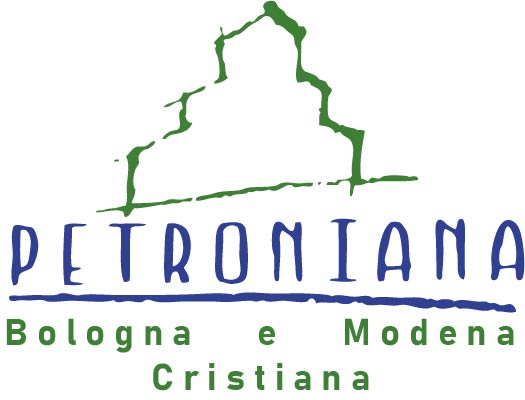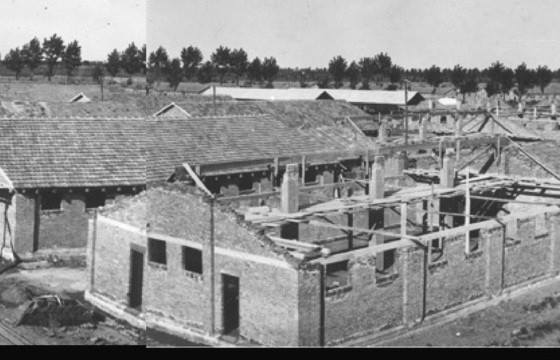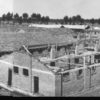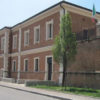TRAVEL PROGRAMME
4 days – 3 nights
Tour to discover places that are not so well known and celebrated, but extremely full of religious and human significance in the history of Judaism and our land. Culture and emotion in a surprising experience, following in the footsteps of another ‘Exodus’.
Day 1 – ARRIVAL and ACCOMMODATION in HOTEL
Evening arrival of the group in Bologna, meeting at the airport/train station with guide and private coach. Hotel accommodation. Dinner at your leisure. Overnight stay.
Day 2 – FERRARA and THE GARDEN OF THE FINZI-CONTINIS
Breakfast at the hotel. Transfer to Ferrara. Giorgio Bassani’s famous novel entitled “Il giardino dei Finzi-Contini” (The Garden of the Finzi-Continis) made known to the world the vitality of Jewish Ferrara in the early twentieth century. At that time Jews were the cultured elite of the city, but in little more than twenty years they were to suffer the tragic consequences of the racial laws and the German occupation in Italy. The itinerary winds through the streets of the charming historic centre dominated by the imposing fourteenth-century Este castle, pausing in the places that witness the presence of a Jewish community in the city. A visit to the “National Museum of Italian Judaism and the Shoah”, which was established in 2003 by the Ministry for Cultural Assets and Activities, by the Municipality of Ferrara, the CDEC (Centro di Documentazione Ebraica Contemporanea – Centre for Contemporary Jewish Documentation) and the UCEI (Unione delle Comunità Ebraiche Italiane – Union of Italian Jewish Communities), is a must. Return to Bologna in the evening. Dinner at your leisure.
Day 3 – DEPORTATION IN ITALY: Meditate that this was what happened.
Breakfast at the hotel. Departure with private coach to reach the city of Carpi, in the province of Modena, which hosted the largest Italian Nazi-fascist concentration and sorting camp in its countryside, in the locality of Fòssoli. The choice of the place was not accidental: In fact, Fòssoli had a small station along the railway route to the Brenner Pass in the Trentino Alto-Adige region. The famous writer Primo Levi, one of the few Jews who miraculously escaped the crematoria of Auschwitz, recounts in the first pages of his book “If this is a man” that he left from here for Poland. To commemorate the victims of deportation, the Municipality of Carpi established the “Museum-Monument to the Deported”, already open in 1973 and still open to visitors today. The itinerary will wind between this destination and Modena, through the interesting places that prove a centuries-old Jewish presence in the area (Synagogue and Vicolo Squallore). Return to Bologna in the evening. Dinner at your leisure.
Day 4 – BOLOGNA and its ANCIENT TORAH
Breakfast at the hotel. A stroll through the city by foot, starting from the Basilica of Santo Stefano. Tradition indicates Saint Petronius as the creator of this basilica complex. His intention was to build a building in imitation of the Holy Sepulchre in Jerusalem, so that the Bolognese and pilgrims could relive Christ’s Calvary without having to undertake the long journey to the Holy Land. The street adjacent to Piazza Santo
Stefano, now called via Gerusalemme, represented the road through which Jesus entered the Holy City, riding an old donkey. Bologna thus demonstrates that it has an intrinsic bond with Jerusalem. The Jewish community of Bologna seems to have been one of the most vibrant in Italy before the advent of the Papal States, which, in the 16th century, took the city away from the ruling Bentivoglio family. The freedoms of the Jews were progressively reduced until 1593, when their expulsion from all territories under papal jurisdiction was decreed. The Osteria del Cappello Rosso (The Red-Hat Tavern), which still exists today, was the only refreshment point that was granted to Jewish wayfarers if they were to come to the city for business. Since 2013, the city of Bologna boasts the distinction of possessing the oldest Torah manuscript in the world. The discovery took place almost by chance when the city university’s catalogue of Hebrew manuscripts was updated. The work would have been composed between the second half of the 12th century and the first half of the 13th. Scholars are trying to understand why such a manuscript is present in the city. The itinerary is entirely dedicated to Bologna, to its links with the Jewish tradition and to its cultural richness.
In the evening, transfer to the airport/train station for the return.
The fee includes: coach available for the entire duration of the tour (VAT and tolls included); accommodation in a central 3-star hotel in Bologna on a bed and breakfast basis; all scheduled visits with a licensed guide. The fee does not include: Meals, entrance tickets, anything not expressly indicated under “the fee includes” section.
All risk, medical, baggage and cancellation policy available as an extra.
The order of the visits could be changed for organisational needs, but this will have no impact on the contents of the visits




